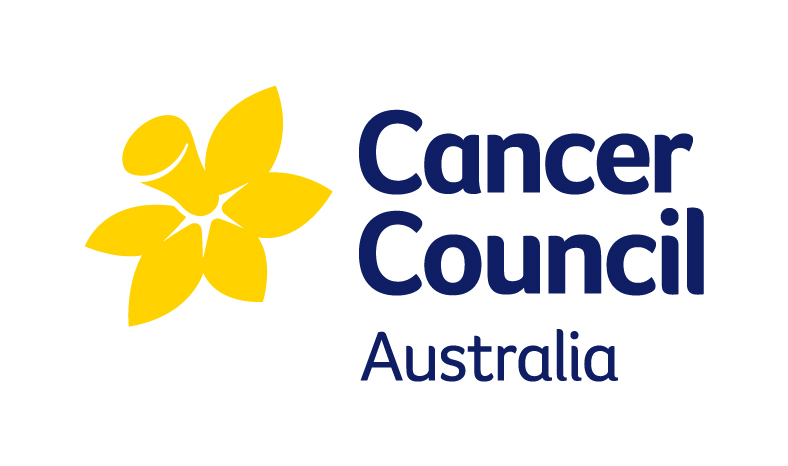Cancer resolution
Adopted at the 70th World Health Assembly (WHA) in Geneva, the 2017 cancer resolution represents a global call for action.
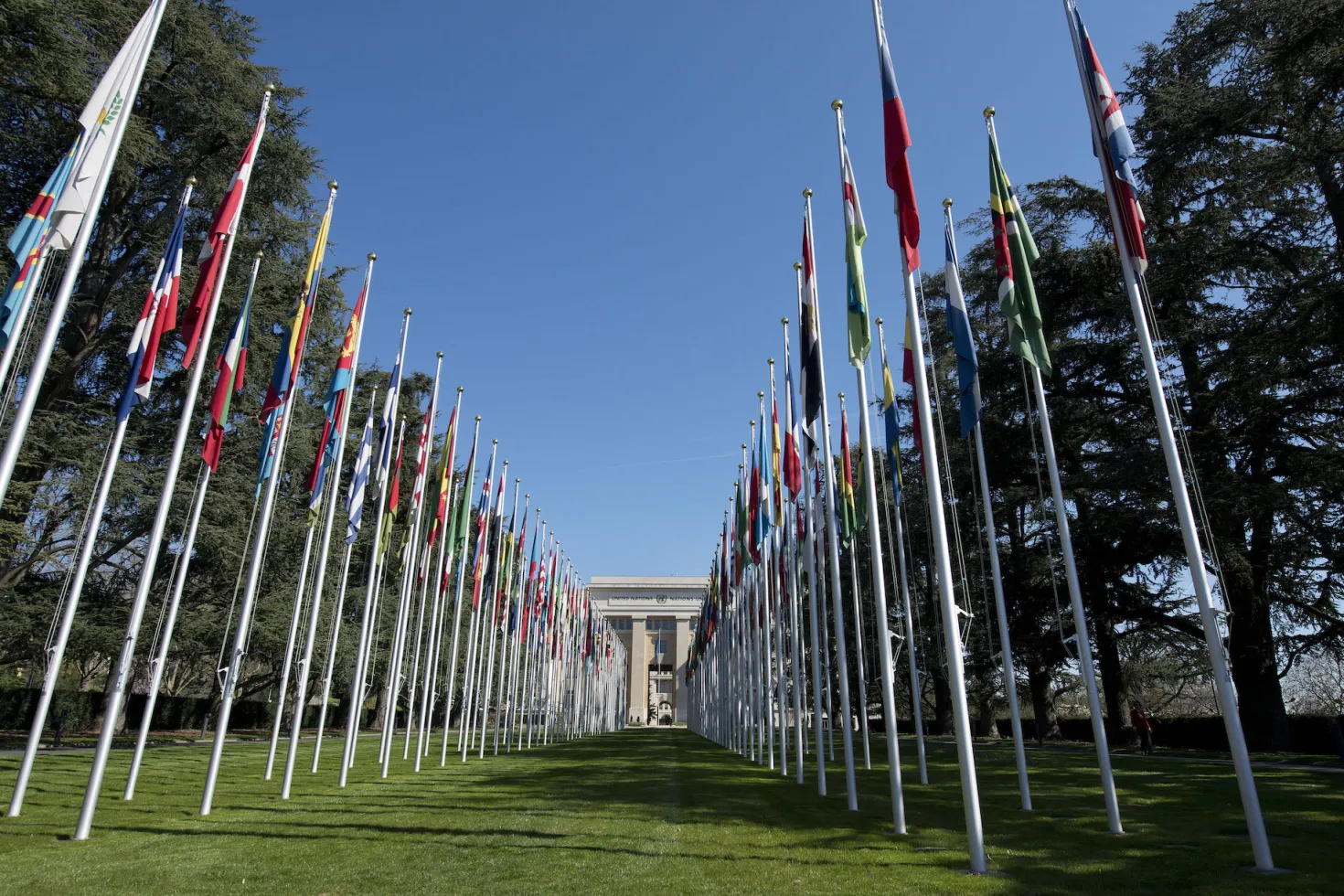
On 30 May 2017, health leaders from across the world reaffirmed cancer control as a critical health and development priority as they adopted the 2017 cancer resolution, entitled “Cancer prevention and control in the context of an integrated approach” at the 70th World Health Assembly (WHA) in Geneva.
The resolution draws on targets set out in the Global Action Plan on NCDs and Sustainable Development Goals to help make the case for increasing national action on cancer. Drawing on best practices from across the globe, it identifies 22 priority actions grouped into four key areas, for countries to systematically strengthen cancer services over time. These should be embedded in national cancer control plans that can drive the introduction or scale-up of services, in line with national priorities and also serve as an important platform to coordinate national stakeholders around common goals. Read UICC’s high-level summary of the 2017 cancer resolution.
Critically, the 2017 cancer resolution aligns national cancer control with the growing dialogue on universal health coverage, emphasising the links and opportunities for integration to deliver sustainable cancer care and stronger health systems. Now, the global cancer community is calling for action on the health systems response, specifically, population-based, holistic approaches to programmes and the expansion and scale up of diagnosis, treatment and care services so that no one is left behind.
With a global cancer burden of 19.3m cases in 2020, and that number expected to rise to a projected 24.6m by 2030, collective action is required now to reverse this trend.
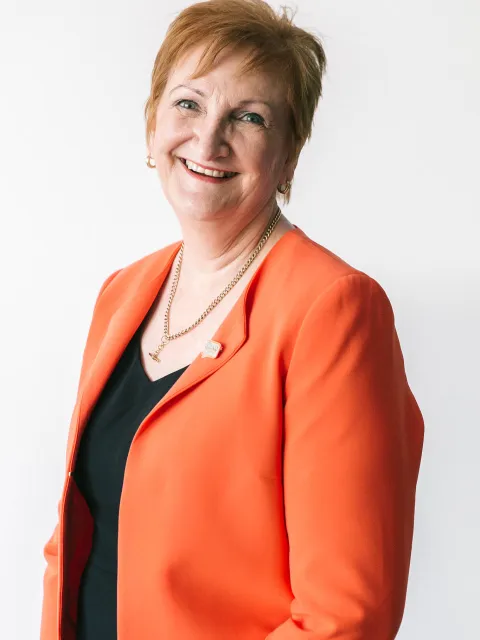
"Australia has 3 national cancer screening programmes for breast, cervical and bowel cancer. These programmes are under continuous evaluation to ensure they are responsive to changing evidence and technology. In cervical cancer, Australia has fully implemented HPV vaccination and is set to shift from PAP testing every two years to HPV DNA testing every five years from 2018. I am hopeful that the cancer resolution and the Australian experience will motivate governments to implement evidence-based cancer prevention and screening programmes."
Sanchia Aranda
Chief Executive Officer, Cancer Council Australia, Past President Union for International Cancer Control (UICC)
2017 Cancer Resolution
From global commitment to national action
uicc.org/CancerResolution
For more information on the cancer resolution check out the webinar recording below with Dr Julie Torode, who was the Director of Special Projects of UICC at the time.
In the meantime, please contact UICC's advocacy team via advocacy@uicc.org to find out more about the resolution and how you can support it.
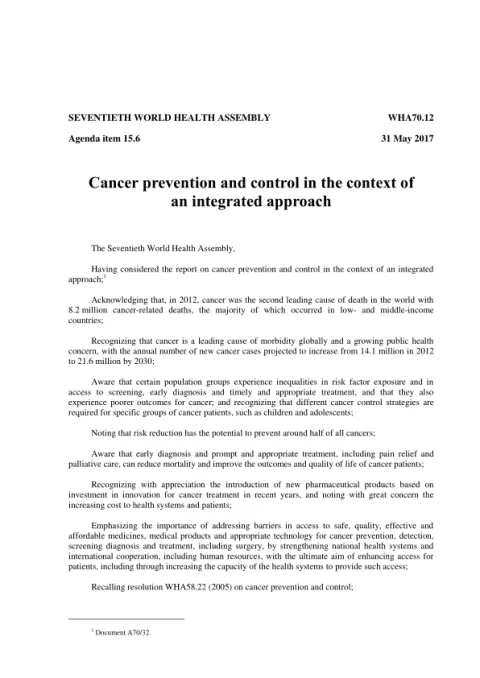
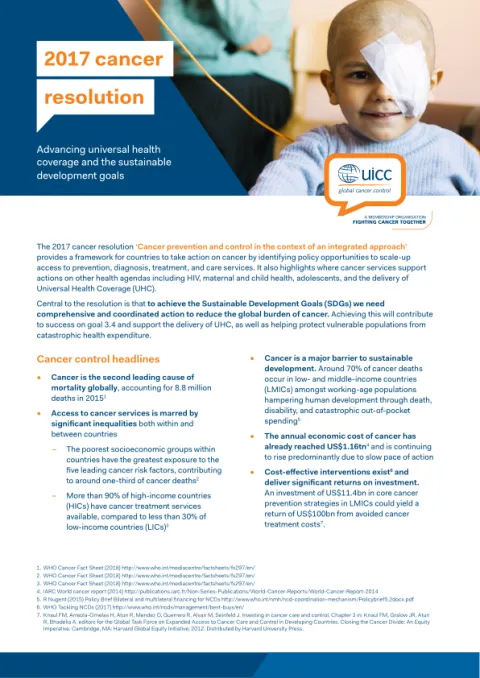
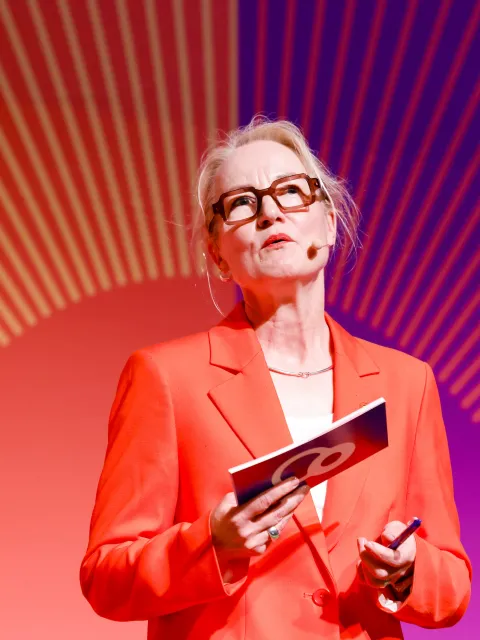
Political will and a national strategy that prioritises targeted investments in cancer control as well as action at the international level can reduce the global cancer burden.
Targeted commitments
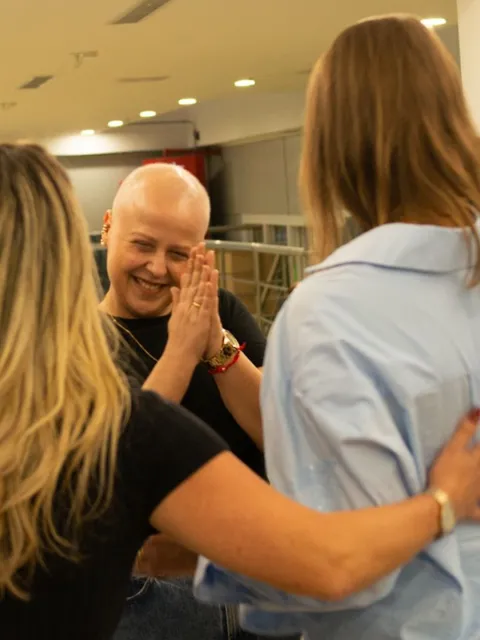
The Union for International Cancer Control (UICC) invites its members to endorse the new World Cancer Declaration 2025–2035, a bold and forward-looking framework designed to guide global cancer control efforts over the next decade.
World Cancer Declaration 2025-2035
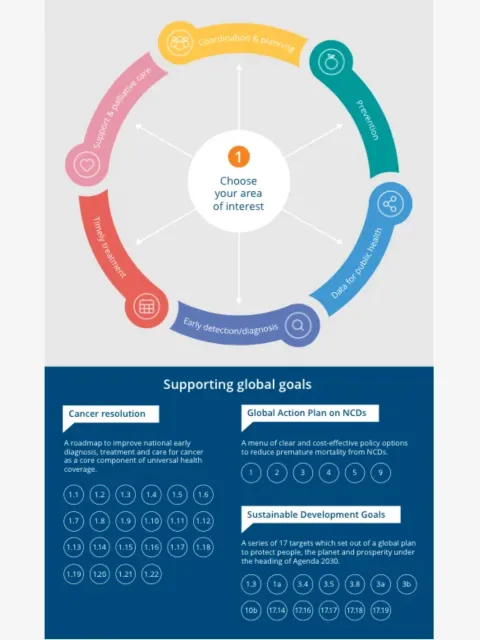
The tool aims to help policy makers and cancer and NCD advocates build understanding about the links between international time bound commitments and priority actions for national impact.

Breast cancer is now the most commonly diagnosed cancer globally, ahead of lung cancer. While the incidence of breast cancer is generally higher in more developed regions, the number of cases is rising in low- and middle-income countries and they are often diagnosed later, leading to more serious outcomes.
Global Breast Cancer Initiative

Cervical cancer is the fourth most common cancer among women globally and currently, one life is lost every two minutes to this disease.
Cervical cancer
Last update
Monday 04 September 2023